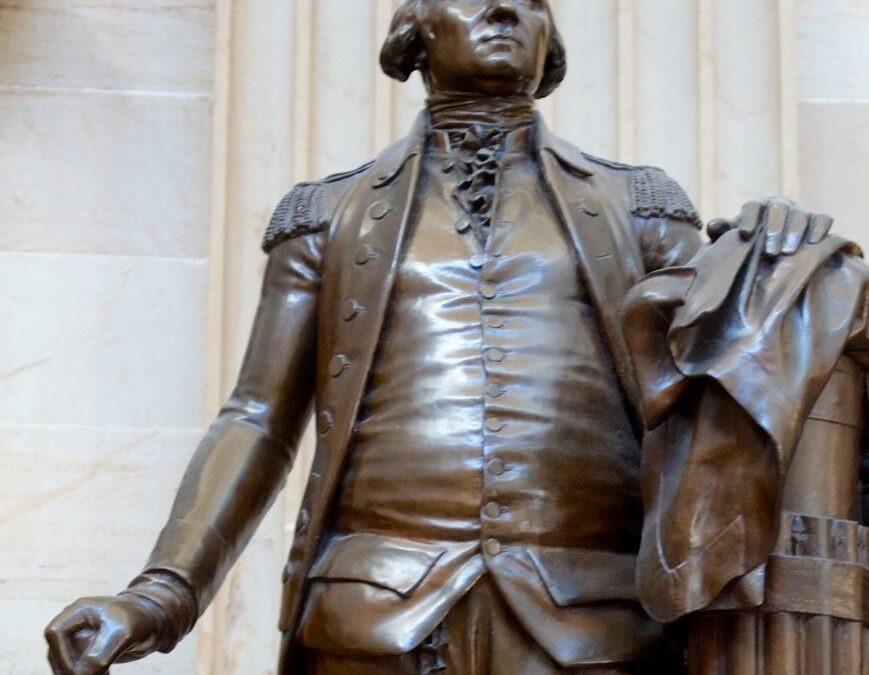
by Richard Subber | Apr 20, 2025 | American history, Book reviews, Books, History, Revolutionary War
King George wanted to win the war…
the other guys, not so much…
Book review:
Iron Tears:
America’s Battle for Freedom,
Britain’s Quagmire: 1775:1783
Stanley Weintraub (1929-2019)
New York: Free Press, 2005
375 pages
For some time I have indulged my suspicion that the British never really tried very hard to win the Revolutionary War.
Stanley Weintraub’s Iron Tears isn’t the first book that has reinforced my understanding of this most iconic event in American history. If you’re interested, try Nick Bunker’s An Empire on the Edge or Andrew Jackson O’Shaughnessy’s An Empire Divided.
Weintraub offers a solidly researched and richly anecdotal account of the military details and the political wrangling that prolonged the war for several years until the British ministers and politicians finally admitted to themselves that they couldn’t win the war.
King George III was fatuously optimistic and persistently unrealistic—to the bitter end—about the prospects for winning a war that he desperately identified with his own persona and his royal stature.
Weintraub makes it irrefutably clear that at no time during the Revolutionary War did the British send enough men and ships to win in North America, that is, to put down the rebellion and re-establish full constitutional Parliamentary control of the 13 colonies. Hint: the British “sugar island” colonies in the Caribbean were more important, and the British never stopped looking over their shoulders at prospective and real war with France, Spain, and other countries.
On October 18, 1781, General Washington accepted the capitulation of the army of General Cornwallis at Yorktown. On November 25, an official dispatch with the bad news finally reached Lord North, the British prime minister, at Downing Street. It is reported that he exclaimed “Oh God! It is all over!”
Quite possibly he was overcome with grief and relief.
* * * * * *
Book review. Copyright © Richard Carl Subber 2025 All rights reserved.
Book review: A Cold Welcome
The culprit was global cooling,
500 years ago…
by Sam White
–
Above all: Poems of dawn and more with 73 free verse poems,
and the rest of my poetry books are for sale on Amazon (paperback and Kindle)
and free in Kindle Unlimited, search Amazon for “Richard Carl Subber”
* * * * * *
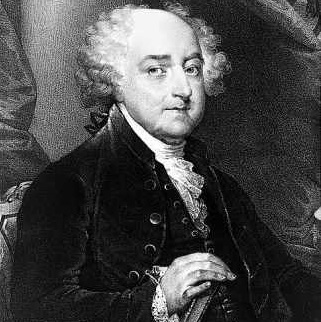
by Richard Subber | Jan 7, 2025 | American history, Book reviews, Books, Democracy, History, Politics, Revolutionary War
…John Adams,
in the thick of it…
Book review:
John Adams
by David McCullough (1933-2022)
Simon & Schuster, New York, 2001
751 pages
Maybe you’re like me. Maybe you don’t think biography is the best way to do history. David McCullough’s Pulitzer Prize-winner is a reason to change your mind a bit.
John Adams, simply, is a really good book. McCullough helps you to warm up to this American icon and to his personal experience in leading the American Revolution and the first formative years of the American republic.
Adams, our first vice president and second president, was among the few who were in the thick of it from the beginning, and he never shrank from doing what he expansively viewed as his duty to his new country.
McCullough’s prose is a delightful experience for the serious historian and for the armchair dabbler who likes a good read. From cover to cover, John Adams is a lush, genuine presentation of a man, his loved ones, his career, his commitment to do good works and his never-flagging appreciation that the object of government should be to do the people’s business and make possible
* * * * * *
Book review. Copyright © Richard Carl Subber 2025 All rights reserved.
–
As with another eye: Poems of exactitude with 55 free verse and haiku poems,
and the rest of my poetry books are for sale on Amazon (paperback and Kindle)
and free in Kindle Unlimited, search Amazon for “Richard Carl Subber”
* * * * * *
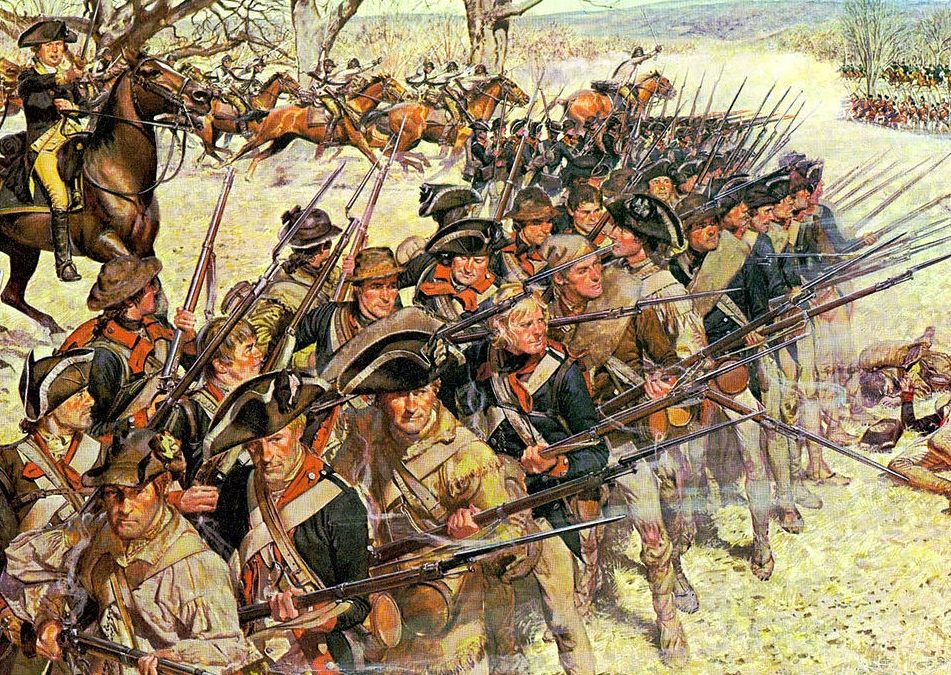
by Richard Subber | Aug 8, 2024 | American history, Book reviews, Books, History, Revolutionary War
the way it was…
Book review:
The History of the American Revolution vol. II
by David Ramsay
New York: Russell & Russell, 1789, 1793, 1968
360 pages
One of the best reasons for reading The History of the American Revolution is that it was written by an educated physician who actually served in the Revolutionary War.
David Ramsay wrote a book that is mostly play-by-play. The context is who did what and when.
There’s not a lot of deep thinking about the motivations of the politicians and generals on either side.
The reader can imagine that this is the way that Huntley and Brinkley might have reported the Revolutionary War.
* * * * * *
Book review. Copyright © Richard Carl Subber 2024 All rights reserved.
Book review:
The American Revolution: A History
The “Founders” were afraid
of “democracy”…
by Gordon S. Wood
As with another eye: Poems of exactitude with 55 free verse and haiku poems,
and the rest of my poetry books are for sale on Amazon (paperback and Kindle)
and free in Kindle Unlimited, search Amazon for “Richard Carl Subber”
* * * * * *
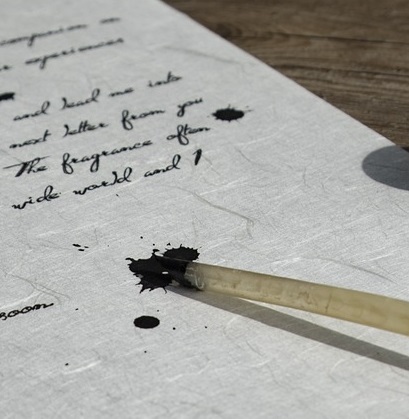
by Richard Subber | Apr 6, 2024 | American history, Book reviews, Books, History, Politics, Revolutionary War
the Adams-Jefferson “friendship”
Book review:
Friends Divided: John Adams and Thomas Jefferson
by Gordon S. Wood (b. 1933)
New York: Penguin Press, 2017
502 pages, extensive index and notes
Gordon Wood is a rightly acclaimed historian and author. Friends Divided is not his best work.
Wood has enviably thorough knowledge of the history of the American revolution, and his oeuvre is fascinating and compelling.
It seems to me that Wood has invested too much of idealized historical circumstances into the thinking of Adams and Jefferson, and the torrent of writing that they produced.
They were influential human beings and leaders in their society. I don’t buy the so-called “great man” concept of historiography. I don’t think Wood endorses it, but it seems that he has pasted the towering personalities of Adams and Jefferson into and onto his remarkably comprehensive understanding of the Enlightenment, American revolutionary politics, and the social/commercial evolution of America before and after the divorce from Britain.
Adams and Jefferson had a celebrated (then and now) on-and-off friendship during most of their adult lives.
Friends Divided is not what the American Revolution is all about, despite Gordon Wood’s rapturous concatenation of the “friends” and the world they lived in.
* * * * * *
Book review. Copyright © Richard Carl Subber 2024 All rights reserved.
Seeing far: Selected poems with 47 free verse and haiku poems,
and the rest of my poetry books are for sale on Amazon (paperback and Kindle)
and free in Kindle Unlimited, search Amazon for “Richard Carl Subber”
* * * * * *
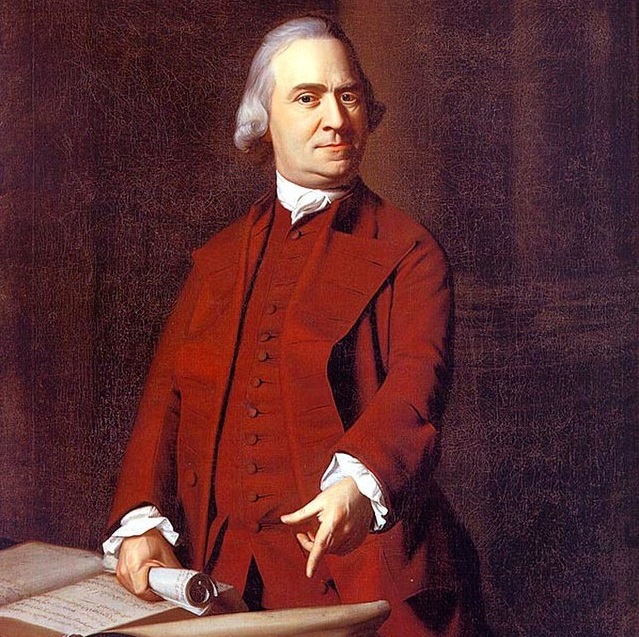
by Richard Subber | Aug 31, 2023 | American history, Book reviews, Books, History, Revolutionary War
a primary mover
Book review:
The Revolutionary: Samuel Adams
by Stacy Schiff (b1961)
New York: Little, Brown and Company, 2022
422 pages
If this is your first encounter with Stacy Schiff, you can guess it won’t be your last.
She writes powerful prose that makes you want to linger over the words, to learn more deeply, and to experience her transformation of history into something believable and real.
Samuel Adams was a primary mover of the American revolution.
The British loyalists on this side of the pond and the king and Parliament on the other side recognized his vital role in bringing the colonial Americans around to their ultimate decision to cut the ties that bound them to England and its king.
Samuel Adams tells a whole lot more about the story of the man than you learned before.
Take some time to read it.
* * * * * *
Book review. Copyright © Richard Carl Subber 2023 All rights reserved.
Book review: Hag-Seed
by Margaret Atwood…it ain’t Shakespeare
–
In other words: Poems for your eyes and ears with 64 free verse and haiku poems,
and the rest of my poetry books are for sale on Amazon (paperback and Kindle)
and free in Kindle Unlimited, search Amazon for “Richard Carl Subber”
* * * * * *

by Richard Subber | May 14, 2023 | American history, Book reviews, Books, History, Joys of reading, Revolutionary War
…John Adams,
in the thick of it…
Book review:
John Adams
by David McCullough (1933-2022)
Simon & Schuster, New York, 2001
751 pages
Maybe you’re like me. Maybe you don’t think biography is the best way to do history. David McCullough’s Pulitzer Prize-winner is a reason to change your mind a bit.
John Adams, simply, is a really good book. McCullough helps you to warm up to this American icon and to his personal experience in leading the American Revolution and the first formative years of the American republic.
Adams, our first vice president and second president, was among the few who were in the thick of it from the beginning, and he never shrank from doing what he expansively viewed as his duty to his new country.
McCullough’s prose is a delightful experience for the serious historian and for the armchair dabbler who likes a good read. From cover to cover, John Adams is a lush, genuine presentation of a man, his loved ones, his career, his commitment to do good works and his never-flagging appreciation that the object of government should be to do the people’s business and make possible a decent life for all.
Adams, of course, couldn’t stop himself from being a politician, and he wasn’t the nicest kind.
The Alien and Sedition Acts were among the lowest points of American politics.
* * * * * *
Book review. Copyright © Richard Carl Subber 2023 All rights reserved.
Book review: Who Built America?
…including people
who got their hands dirty
by Christopher Clark and Nancy Hewitt
–
Above all: Poems of dawn and more with 73 free verse poems,
and the rest of my poetry books are for sale on Amazon (paperback and Kindle)
and free in Kindle Unlimited, search Amazon for “Richard Carl Subber”
* * * * * *




